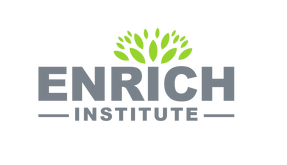|
By: Peter Gregory Following a pre-election lull, land disputes are once again on the rise in Cambodia according to NGOs Adhoc and Licadho. This has led to an increase in legal action against villagers and even death threats being leveled at a prominent activist last month. The Cambodian government must reform the nation’s property rights laws as a matter of moral and economic urgency. Cambodia’s economy has rocketed along in recent times with growth averaging 8.1 percent over the last decade. The Brookings Institute estimates that an astonishing 3.5 million Cambodians will fight their way out of poverty between 2005 and 2015. This result is a credit to reforms that have slowly nudged Cambodia towards a freer economy and to the hard work and entrepreneurial spirit of the Cambodian people.
But there is significant work to be done for Cambodia to transition to a fully free economy and to grasp the wholesale reduction in poverty that will occur for its people as a result. In particular, the government must tackle Cambodia’s complex, costly and unfair property rights framework. Specifically, it must make it cheaper and simpler for individuals to own land, open up its land titling program to scrutiny and refrain from acting with impunity with regards to property rights in general. The right to own property is a human right. Possessing land and using it to live, produce something of value or as security is central to the human condition. On this basis alone, the Cambodian government should be compelled to reform property rights in the Kingdom. Nonetheless, the economic benefits for individuals owning property are extensive. Along with providing a degree of security for individuals in times of hardship, property rights enable entrepreneurs to borrow money to start businesses that will benefit themselves, their families and their communities. Indeed, more than 70 percent of businesses in the U.S. are started by using a family dwelling to leverage bank loans. Millions of Cambodian entrepreneurs are unable to do this at present. Cambodia’s property rights problems stem from the Khmer Rouge regime and the transitional government that followed, both of which outlawed private property ownership. The result was that by the time the 1993 Constitution was ratified, very few Cambodians owned the land they lived on. Indeed, USAID estimates that state land accounts for approximately 75 to 80 percent of Cambodia’s total land area. To change this, the government must simplify the process and reduce the cost faced by individuals attempting to gain full private ownership of their land. At present, opaque land titling definitions such as “soft titling” and “hard titling” are unduly complicated. These two title categories mean different things, have different requirements and are administered by different authorities. This complexity is a hindrance to villagers buying and selling land, many of whom don’t have paperwork and have little experience with private property rights. Furthermore, to gain genuine private ownership of their land, individuals must fulfil unnecessarily onerous requirement such as proving they owned and occupied the land for five years prior to 2001. This tenure must be confirmed by numerous parties, including neighbors. The net result of all this is the near impossibility that millions of Cambodians will ever be able to own the land they currently live on. Whilst the government claims it has granted 450,000 new titles since 2012, it has failed to make public the conditions and rules governing these titles and has refused to let NGOs monitor the process. This is frustratingly counterproductive. A lack of clarity regarding the nature of a property right mitigates most of the economic benefit property rights can bring. Finally, the Cambodian government must refrain from acting with impunity with regards to property rights in general. Licadho has observed a four-fold increase in “land-grabs” in the first part of this year compared to the same time last year. Indeed, since 2000 Amnesty International estimates some 420,000 people have been affected by forced evictions to make way for developments that are said to be in the “national interest” but are invariably also very much in the business interests of senior members of the regime. Even worse, this has been accompanied by violence and intimidation. Not only is this immoral but also a retrograde step economically as large swathes of the population will always be poor if they can’t gain real private ownership of their homes. Cambodia has a dark history of property rights abuses. Whilst it has come a long way since the Khmer Rouge liquidated private property, the last major reform, the 2001 Land Law, occurred over a decade ago. For Cambodians to rise above their history, this government must prove itself truly transformative and enable millions of Cambodians to grasp the basic human right, not to mention the myriad economic benefits, of owning property for the first time. Peter Gregory is a research fellow at the Institute of Public Affairs in Melbourne. Note: this article originally appeared in the Cambodia Daily on June 06, 2014
0 Comments
Leave a Reply. |
Categories
All
Archives
October 2017
Disclaimer: All views expressed here belong to their respective author and do not represent the views of Enrich Institute
|

 RSS Feed
RSS Feed
